Carol Burnett is beloved as a comedic icon, a figure so genuinely warm she feels like everyone’s favorite aunt. While many remember her from The Carol Burnett Show, my personal introduction was through Mama’s Family. This sitcom, airing on a local indie station alongside classics like Matlock and Perry Mason, always felt like comfort viewing. However, tracing Mama’s Family back to its origins reveals a surprisingly complex and darker history, far removed from the lighthearted sitcom many remember.
Before Mama’s Family became the syndicated hit known for Vicki Lawrence’s sharp-tongued Mama and a house full of quirky relatives, there was Eunice, a 1982 CBS TV movie. This wasn’t a laugh-a-minute sitcom precursor; Eunice was a 90-minute dramatic piece, unfolding like a four-act play, exploring the dysfunctional Harper family with a raw and often heartbreaking lens. Think All in the Family meets a Norman Lear special about the disillusionment of the American dream, but with a distinctly somber tone. It’s a stark contrast to the comedic Mama’s Family show, and arguably, artistically richer in its own right.
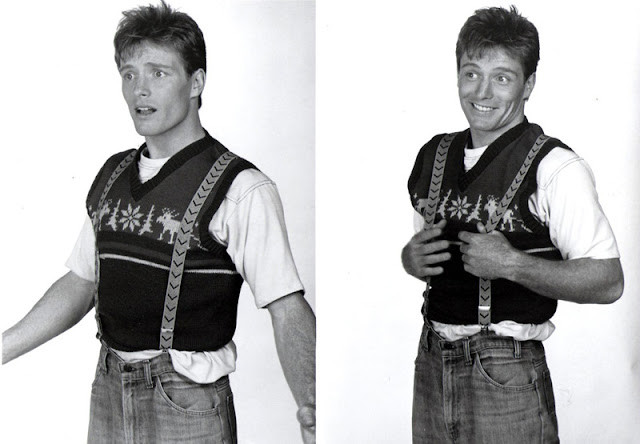
Allan Kayser as Bubba Higgins in Mama’s Family, a character who first appeared in the syndicated episodes, adding a new dynamic to the family show.
Eunice: A Dramatic Prequel to Mama’s Family
Eunice isn’t just a prequel; it’s an alternate dimension for the Harper family. Structured in four vignettes set in 1955, 1963, 1973, and 1978, the film chronicles Eunice Harper’s tragic journey. We witness her transformation from a young woman with artistic aspirations to a bitter, alcoholic divorcee trapped by her circumstances and family obligations. Ken Berry, known as the lovable but dim-witted Vinton on Mama’s Family, appears in Eunice as Phillip, Eunice’s brother. However, Phillip is a starkly different character – a writer who achieves success by leaving Raytown for Los Angeles, becoming a source of resentment for Mama and Eunice. This departure highlights a central theme: the stifling nature of family and small-town life on individual dreams. Betty White portrays Ellen, Mama’s snobbish daughter, much like her sitcom counterpart, relishing her comparative success and social standing over Eunice.
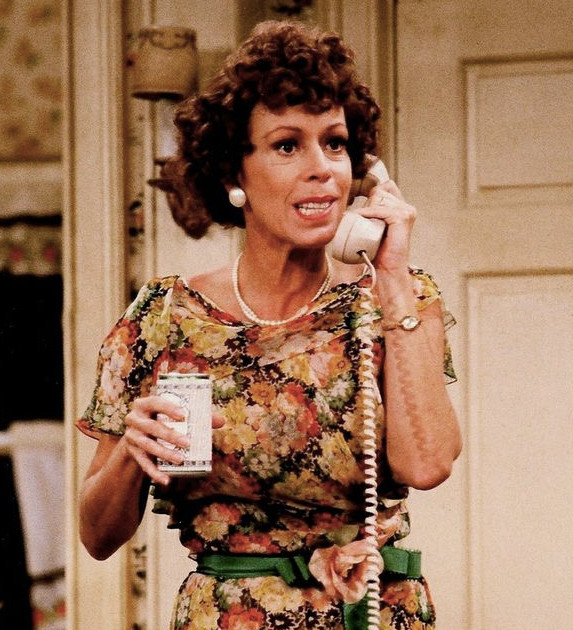
Carol Burnett as Eunice Harper in “Eunice,” showcasing the dramatic depth of the character before Mama’s Family show became a sitcom.
The most significant divergence between Eunice and Mama’s Family lies in Mama Harper’s fate. In a dramatic turn, Mama passes away before the final act of Eunice. The movie culminates with the Harper siblings reuniting at the family home after her funeral. This scene is profoundly moving, as Eunice confronts her life’s disappointments and the void left by her mother’s death. Phillip offers Eunice a lifeline, urging her to pursue her dreams in Los Angeles. For a fleeting moment, hope flickers within Eunice. However, a phone call from a distant aunt with a minor ailment pulls Eunice back into her familiar role of caretaker. She chooses to stay, deferring her dreams indefinitely, suggesting a cycle of familial obligation that will forever prevent her escape.
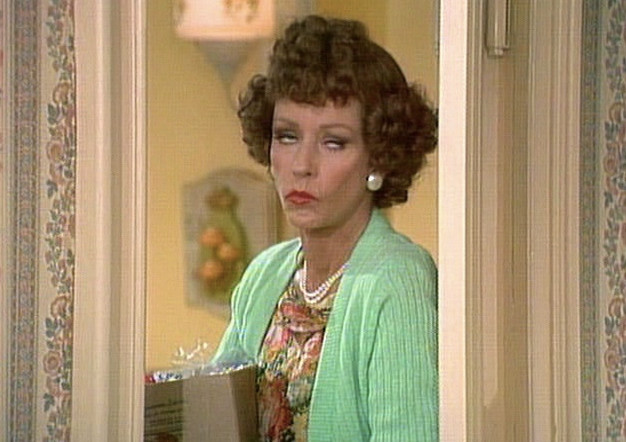
A poignant scene from “Eunice” featuring Carol Burnett, highlighting the dramatic shift from sketch comedy to a more serious portrayal of family dynamics that contrasts sharply with the Mama’s Family show’s comedic tone.
From Dark Drama to Sitcom Comfort
The evolution from Eunice to Mama’s Family is striking. While Eunice portrays family life as potentially toxic and detrimental to personal aspirations, Mama’s Family reframes the Harpers into a dysfunctional yet ultimately supportive unit. In the sitcom, leaving the family isn’t presented as the only path to success or happiness. Hints of Mama’s Family are sprinkled throughout Eunice. Naomi Oates, later Vinton’s wife in Mama’s Family, is mentioned as Eunice’s drinking companion. Bubba, another future Mama’s Family character, is referenced as having run away from home. Even the unseen, ailing aunt in Eunice feels like a precursor to Aunt Fran (Rue McClanahan) from Mama’s Family.
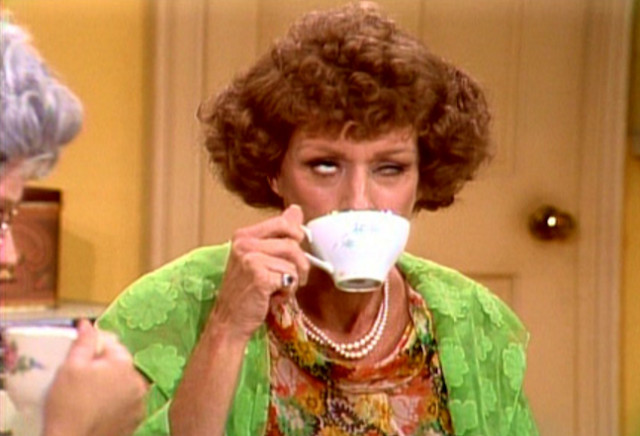
Vicki Lawrence as Mama Thelma Harper in a promotional shot for Mama’s Family show, capturing the comedic essence of the beloved sitcom.
My childhood fondness for Mama’s Family was rooted in its simple, relatable humor. Vicki Lawrence’s Mama delivered witty, PG-rated insults, making the show a comforting presence even into my teenage years. However, revisiting Eunice as an adult reveals a deeper appreciation for its nuanced storytelling. It’s a poignant portrayal of small-town America and the challenges faced by those who yearn for more than conventional lives. Raytown, the fictional setting, and countless real-life Raytowns across America, can inadvertently suppress individuality and ambition. This personal resonance is why Eunice, as a precursor to the Mama’s Family show, is so compelling – a forgotten, complex origin story behind a familiar, lighthearted sitcom. It’s akin to discovering a lost, dark pilot for The Brady Bunch, revealing a hidden layer beneath the surface of a well-known narrative.
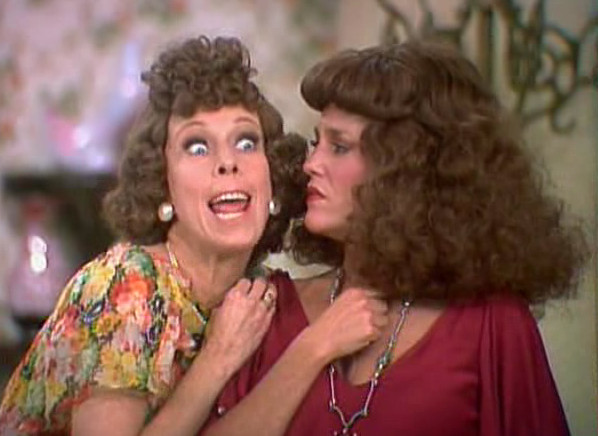
Betty White and Vicki Lawrence in Mama’s Family, highlighting the comedic chemistry that defined the popular TV show.
Rediscovering Eunice: An Alternate Take on the Harpers
If you hold any affection for Mama’s Family, whether for its corniness or genuine warmth, Eunice is essential viewing. It provides a glimpse into an alternate reality of these characters, a dimension where their struggles are less comedic and more profoundly human. It’s a chance to see Carol Burnett and the cast delve into dramatic territory, delivering performances that are surprisingly raw and affecting. They bring a realism to these characters that transcends the sitcom format, revealing the poignant undercurrents of their lives.
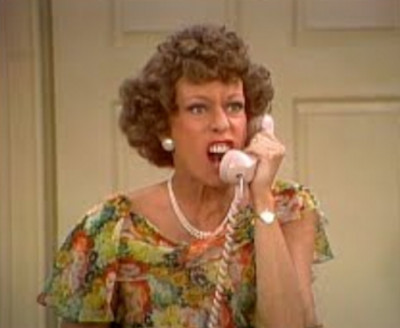
A scene from Mama’s Family showcasing the ensemble cast, a key element of the show’s appeal as a family-centric sitcom.
For those curious about Carol Burnett’s absence in later Mama’s Family episodes, or why Rue McClanahan and Betty White also departed, the reasons are readily available online. The fascinating behind-the-scenes story includes the fact that McClanahan and White famously switched roles for The Golden Girls after their time on Mama’s Family. Harvey Korman, another Carol Burnett Show alum, did appear in early Mama’s Family episodes, providing Masterpiece Theater-style introductions that added a layer of knowing self-awareness to the show’s corny Americana, though these were unfortunately cut from syndicated versions. And yes, Bubba, the character many remember fondly from Mama’s Family, joined the cast after syndication, brought to life by Allan Kayser, who, even today, makes suspenders look undeniably cool.

The cast of Mama’s Family, including Vicki Lawrence and Betty White, in a classic scene from the family show that emphasized humor and relatability.
Ultimately, revisiting Eunice and Mama’s Family offers a fascinating study in contrasts. While Mama’s Family provided lighthearted, comedic comfort, its predecessor, Eunice, delved into darker, more complex themes of family, dreams, and disillusionment. Both are valuable in understanding the evolution of these characters and the enduring appeal of Carol Burnett and her remarkable comedic legacy. And let’s not forget, Eunice Harper, in both her dramatic and comedic incarnations, always knew how to make a memorable face.

Mama’s Family cast photo featuring Vicki Lawrence as Mama and Betty White, showcasing the stars of the popular family show.

